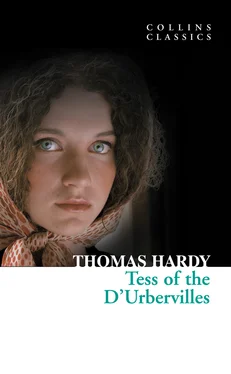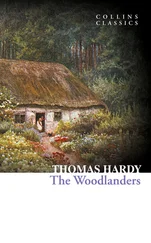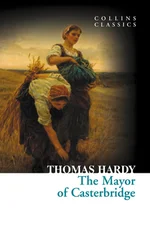One might think that Hardy was religious, given this moral and ethical filter, but he wasn’t particularly interested in religion. He was more taken by the idea of allowing his characters to express superstitions and supernatural beliefs. In this regard he was really adopting the view of the anthropologist, who remains necessarily impartial on matters of belief, so that they can study people with neutrality. His work is also filled with subtle allusions to Classical references, which he used to underpin central characters.
Hardy used to search for events reported in newspapers and often used them in his plots. It wasn’t so much that he lacked the imagination to think up ideas, but that he wanted to inject a sense of realism by introducing elements that simply would not have occurred to him. Real life can sometimes be stranger than fiction.
In Tess of the d’Urbervilles there is a freak accident, where a mail cart collides with Tess’ wagon. Her horse, Prince, is impaled by a cart shaft and killed. This is an example of a news story read by Hardy and incorporated into his fiction. Because the event seems so unlikely, it functions very well as a devise to capture the reader’s imagination and carry the plot in an unexpected direction.
Central to Hardy’s overall ambition as a novelist was to tell stories about people in the landscape, making it all too obvious that living people are only ever custodians of the world for future generations. Dorset is filled with ancient sites of human activity and prehistoric evidence of a past without humanity. Hardy wanted to make it clear that we each have a window of opportunity in life to make our mark. That is why he had little time for people whom he considered to be fatuous or self interested, because he was acutely aware that it is the impression that we make on others and in their memories that counts the most, both during life and after death.
Quite apart from anything else, Hardy had an eye for the tragedy of life. He was a humanist, who cared about the underdog and expressed this by dealing with those who were more privileged in his prose. His own life was not entirely filled with happiness, as he became estranged from his first wife and was then deeply affected by her death. Many of his female characters have a dangerous beauty to them, suggesting that Hardy’s view of women was perhaps coloured by his own experience and that he felt men fall for the charm and allure of women, but end up beguiled and unhappy as the result of their infatuation.
Visit www.AuthorTracker.com for exclusive information on your favorite HarperCollins author.
Cover Page
Title Page
History of Collins
Life & Times
Explanatory Note to the First Edition
Preface to the Fifth and Later Editions
PHASE THE FIRST
CHAPTER 1
CHAPTER 2
CHAPTER 3
CHAPTER 4
CHAPTER 5
CHAPTER 6
CHAPTER 7
CHAPTER 8
CHAPTER 9
CHAPTER 10
CHAPTER 11
PHASE THE SECOND
CHAPTER 12
CHAPTER 13
CHAPTER 14
CHAPTER 15
PHASE THE THIRD
CHAPTER 16
CHAPTER 17
CHAPTER 18
CHAPTER 19
CHAPTER 20
CHAPTER 21
CHAPTER 22
CHAPTER 23
CHAPTER 24
PHASE THE FOURTH
CHAPTER 25
CHAPTER 26
CHAPTER 27
CHAPTER 28
CHAPTER 29
CHAPTER 30
CHAPTER 31
CHAPTER 32
CHAPTER 33
CHAPTER 34
PHASE THE FIFTH
CHAPTER 35
CHAPTER 36
CHAPTER 37
CHAPTER 38
CHAPTER 39
CHAPTER 40
CHAPTER 41
CHAPTER 42
CHAPTER 43
CHAPTER 44
PHASE THE SIXTH
CHAPTER 45
CHAPTER 46
CHAPTER 47
CHAPTER 48
CHAPTER 49
CHAPTER 50
CHAPTER 51
CHAPTER 52
PHASE THE SEVENTH
CHAPTER 53
CHAPTER 54
CHAPTER 55
CHAPTER 56
CHAPTER 57
CHAPTER 58
CHAPTER 59
CLASSIC LITERATURE: WORDS AND PHRASES
Copyright
About the Publisher
Explanatory Note to the First Edition
The main portion of the following story appeared—with slight modifications—in the Graphic newspaper; other chapters, more especially addressed to adult readers, in the Fortnightly Review and the National Observer , as episodic sketches. My thanks are tendered to the editors and proprietors of those periodicals for enabling me now to piece the trunk and limbs of the novel together, and print it complete, as originally written two years ago.
I will just add that the story is sent out in all sincerity of purpose, as an attempt to give artistic form to a true sequence of things; and in respect of the book’s opinions and sentiments, I would ask any too genteel reader, who cannot endure to have said what everybody nowadays thinks and feels, to remember a well-worn sentence of St. Jerome’s: If an offence come out of the truth, better is it that the offence come than that the truth be concealed.
T. H., November 1891
Preface to the Fifth and Later Editions
This novel being one wherein the great campaign of the heroine begins after an event in her experience which has usually been treated as fatal to her part of protagonist, or at least as the virtual ending of her enterprises and hopes, it was quite contrary to avowed conventions that the public should welcome the book, and agree with me in holding that there was something more to be said in fiction than had been said about the shaded side of a well-known catastrophe. But the responsive spirit in which Tess of the d’Urbervilles has been received by the readers of England and America, would seem to prove that the plan of laying down a story on the lines of tacit opinion, instead of making it to square with the merely vocal formulae of society, is not altogether a wrong one, even when exemplified in so unequal and partial an achievement as the present. For this responsiveness I cannot refrain from expressing my thanks; and my regret is that, in a world where one so often hungers in vain for friendship, where even not to be wilfully misunderstood is felt as a kindness, I shall never meet in person these appreciative readers, male and female, and shake them by the hand. I include amongst them the reviewers—by far the majority—who have so generously welcomed the tale. Their words show that they, like the others, have only too largely repaired my defects of narration by their own imaginative intuition.
Nevertheless, though the novel was intended to be neither didactic nor aggressive, but in the scenic parts to be representative simply, and in the contemplative to be oftener charged with impressions than with convictions, there have been objectors both to the matter and to the rendering.
The more austere of these maintain a conscientious difference of opinion concerning, among other things, subjects fit for art, and reveal an inability to associate the idea of the sub-title adjective with any but the artificial and derivative meaning which has resulted to it from the ordinances of civilization. They ignore the meaning of the word in Nature, together with all aesthetic claims upon it, not to mention the spiritual interpretation afforded by the finest side of their own Christianity. Others dissent on grounds which are intrinsically no more than an assertion that the novel embodies the views of life prevalent at the end of the nineteenth century, and not those of an earlier and simpler generation—an assertion which I can only hope may be well founded. Let me repeat that a novel is an impression, not an argument; and there the matter must rest; as one is reminded by a passage which occurs in the letters of Schiller to Goethe on judges of this class: ‘They are those who seek only their own ideas in a representation, and prize that which should be as higher than what is. The cause of the dispute, therefore, lies in the very first principles, and it would be utterly impossible to come to an understanding with them.’ And again: ‘As soon as I observe that any one, when judging of poetical representations, considers anything more important than the inner Necessity and Truth, I have done with him.’
Читать дальше












